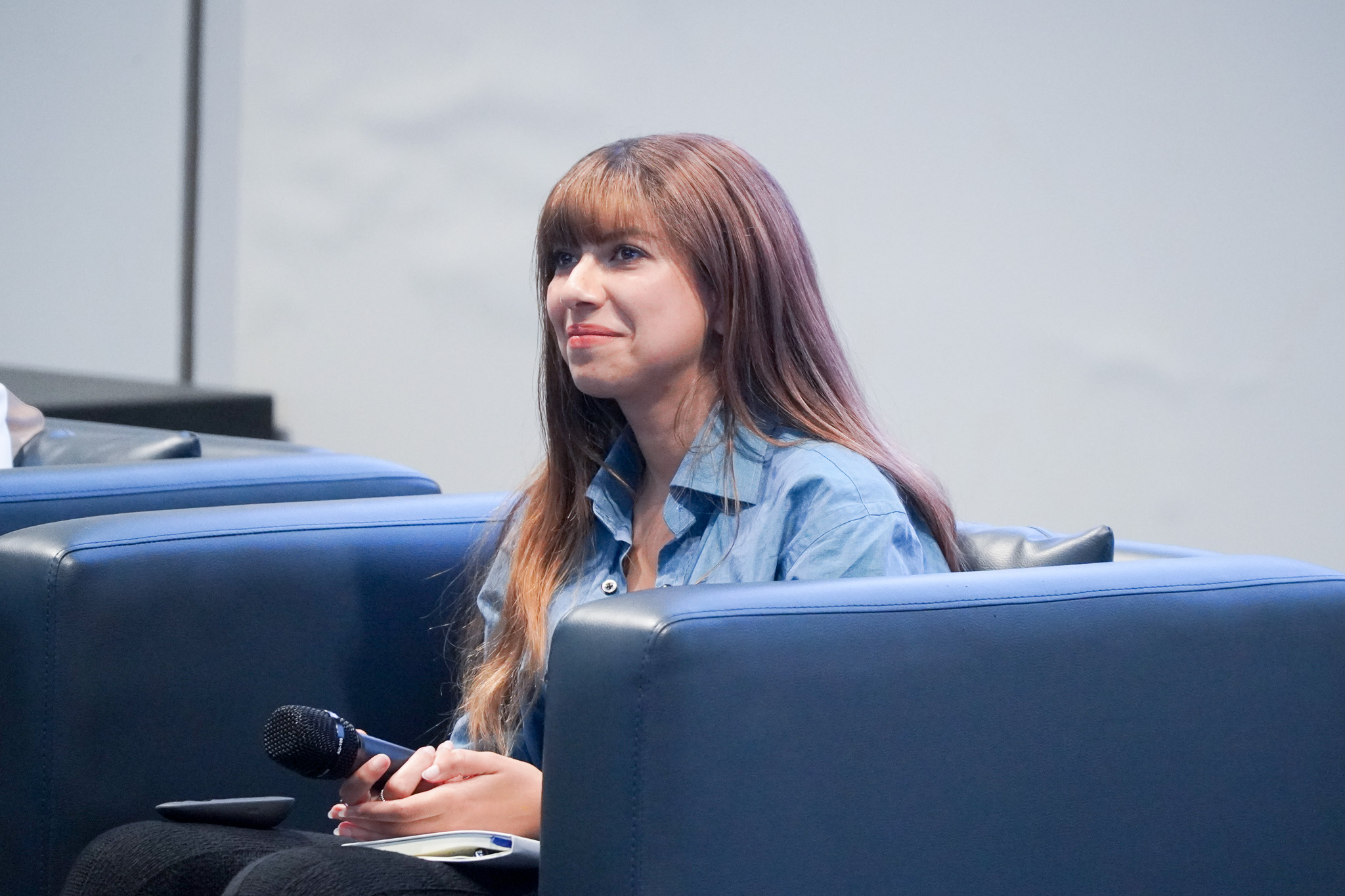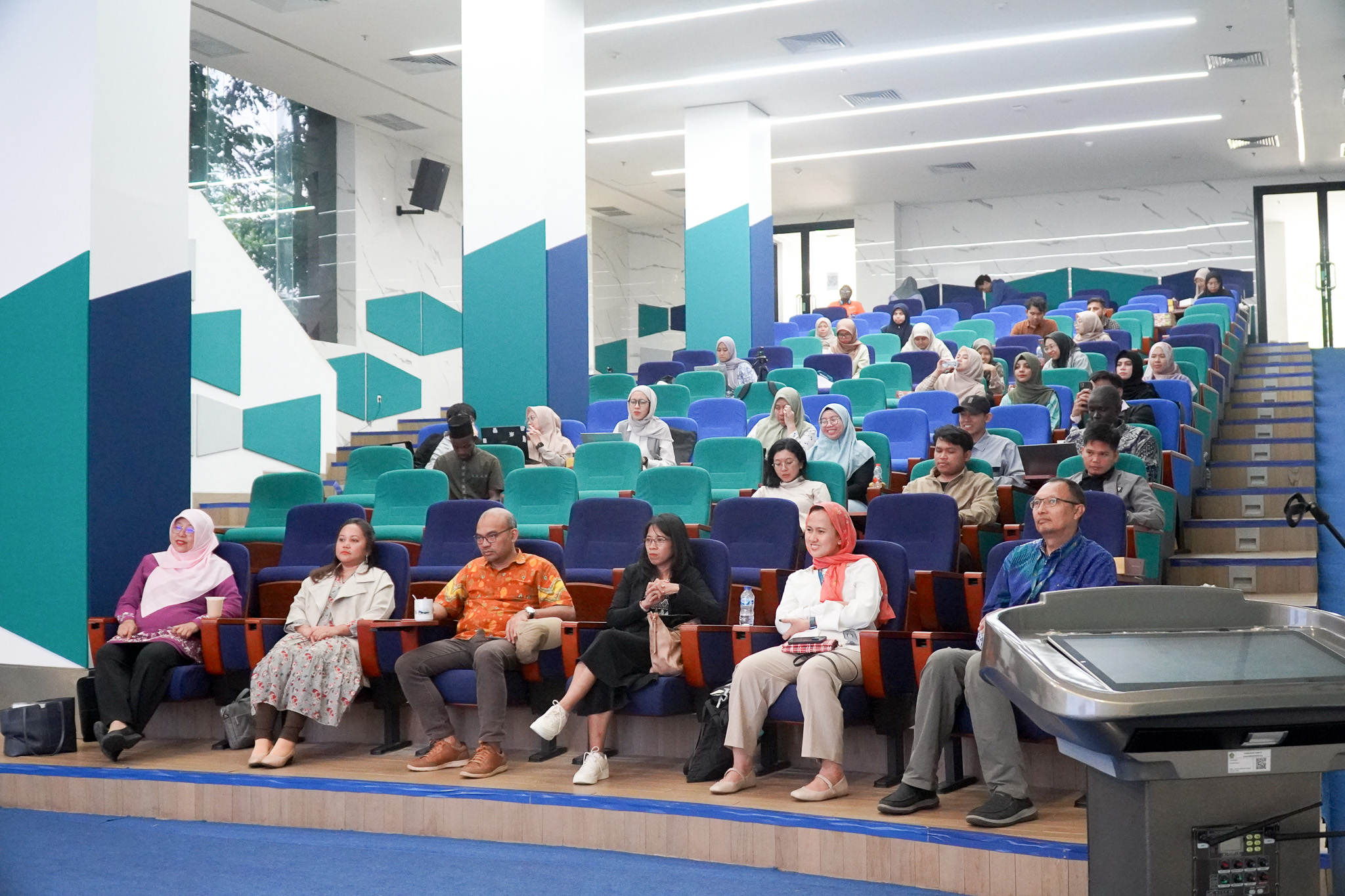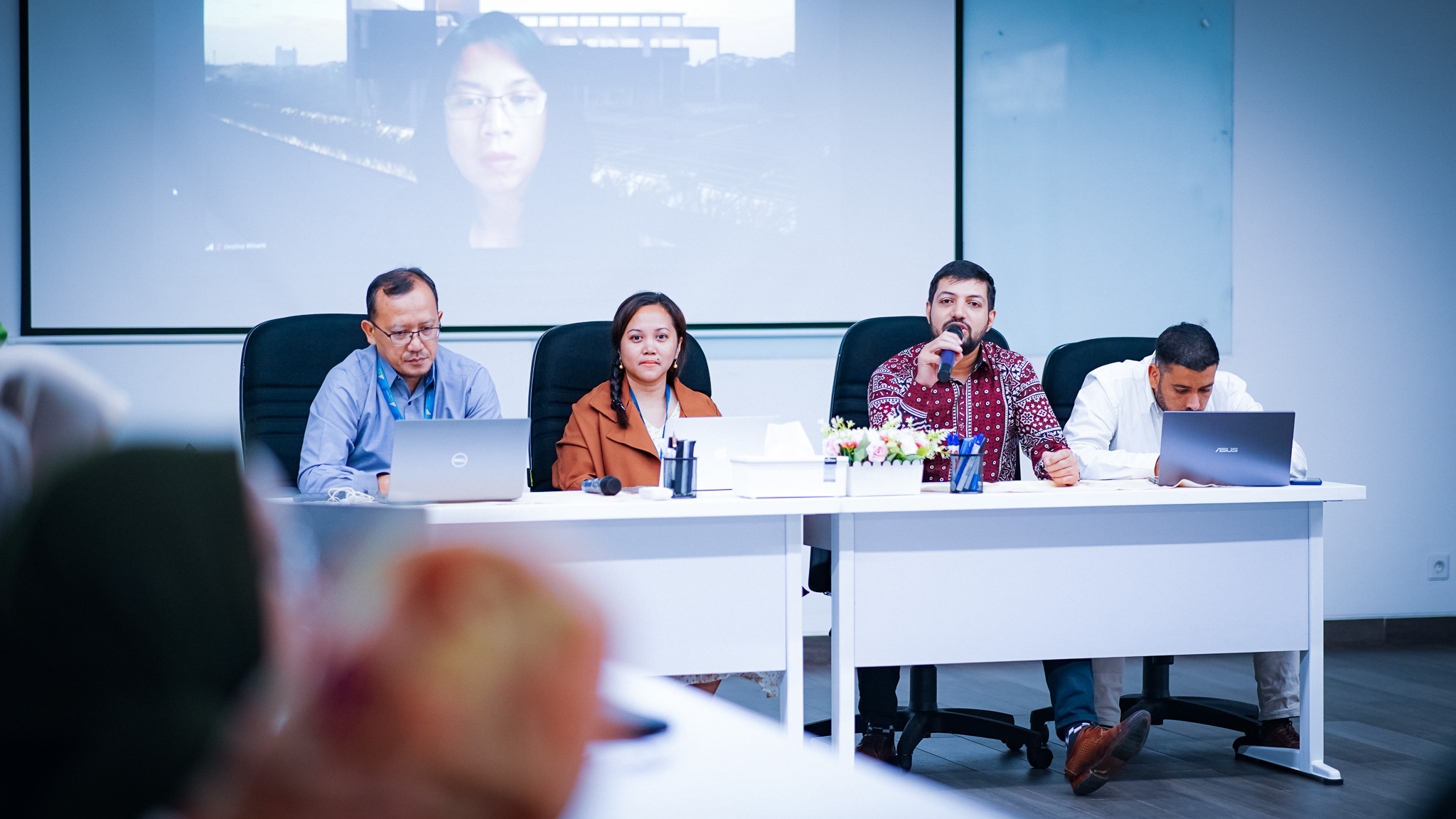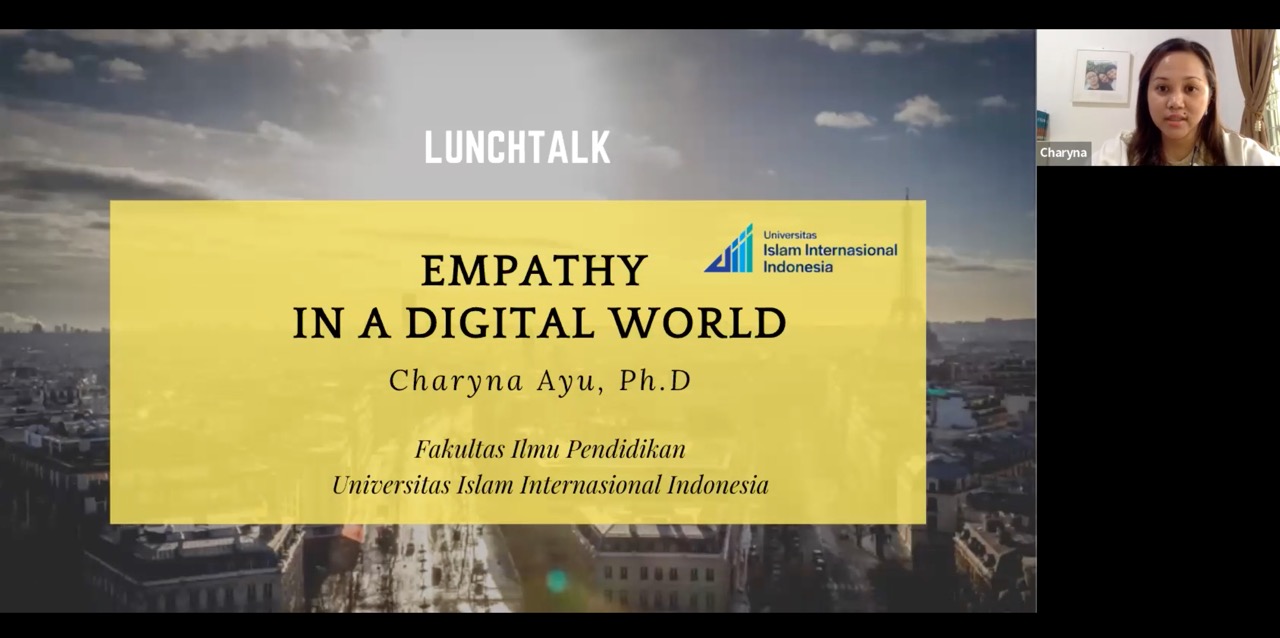LunchTalk #37 Explores Algorithmic Cultures in Education, Work, and Migration
January 10, 2025Contributor: Supriyono | Editor: Dadi Darmadi | Photos: Virda Lalitya Umam

Depok, January 8, 2025 — UIII Faculty of Education hosted its 37th LunchTalk session, featuring Dr. Nardine Alnemr, Lecturer in Politics and Policy at the School of Humanities, Arts and Social Sciences (HASS) and Fellow at the Indo-Pacific Research Centre (IPRC), Murdoch University, Australia. The session explored the theme “Reflections on the Future: Algorithmic Cultures in Education, Work, and Migration.”
Dr. Alnemr's presentation examined the transformative role of algorithms in shaping societal structures and individual experiences, emphasizing their implications across critical domains such as education, workforce dynamics, and global migration patterns.
Drawing from recent scholarship, Dr. Alnemr explained how algorithms increasingly influence work dynamics, public policy, interpersonal relationships, and even electoral processes. This pervasive integration, she argued, fosters a co-evolutionary relationship between human agency and algorithmic political frameworks.

She built upon the concept of "algorithmic cultures," referencing Ted Striphas (2015, 2023), who highlighted the pre-internet presence of computational logics in shaping societal behaviors. She explored the intersections between governance systems and algorithmic decision-making, or "algocracy”.
In education, Dr. Alnemr discussed how algorithmic logic underpins educational technologies, shaping notions of "better" or "worse" outcomes. These technologies, she noted, strive to resolve uncertainties about the causal links between "inputs" and "outputs" in learning processes.
Highlighting key areas in education, Dr. Alnemr noted the growing reliance on digital tools has placed pressure on educators to keep pace with technological advancements. Yet, these tools may compromise deeper pedagogical and philosophical goals.

Dr. Alnemr shared findings from Ireland's National Youth Assembly on AI, which she conducted in 2022 where young participants deliberated on the ethical and practical implications of AI across society, governance, and education. Their concerns included disparities in AI access, insufficient teacher training, and a potential lack of engagement for students in AI-driven learning environments.
In her concluding remarks, Dr. Alnemr invited attendees to reflect on how algorithmic cultures might shape education, work, and migration in the decades ahead. She posed thought-provoking questions about inclusivity, ethical responsibilities, and epistemic diversity, encouraging the audience to consider the long-term impacts of today’s decisions on future generations.
LunchTalk #37 exemplified UIII's commitment to fostering critical discussions on contemporary global challenges. As algorithmic technologies continue to reshape societal norms, events like this provide a platform for thought leaders and audiences to collaboratively envision a more equitable and ethical future.
- UIII Extends Application Deadline for 2025 International Admissions
- What Does Eid al-Fitr Mean for the UIII Academic Community?
- UIII PhD Scholar Ararat Kostanian Delivers Lecture at Armenia's Yerevan State University
- Swedish Ambassador to Indonesia Applauds UIII’s Vision, Explores Future Collaboration
- Depok Mayor Supports UIII as the Green Lung of Depok and Beyond
- Depok Mayor Pledges to Build Performance Hall at UIII
- New Parking Facility Launched, Part of UIII-Sentra Medika Hospital Partnership
- Yogyakarta’s UII Won 1st FisFastFest’s Clash of Campuses
- Vice Minister of Religious Affairs Praises UIII as a Global Hub for Islamic Education
- Hurray!! UIII Wins Football Championship


